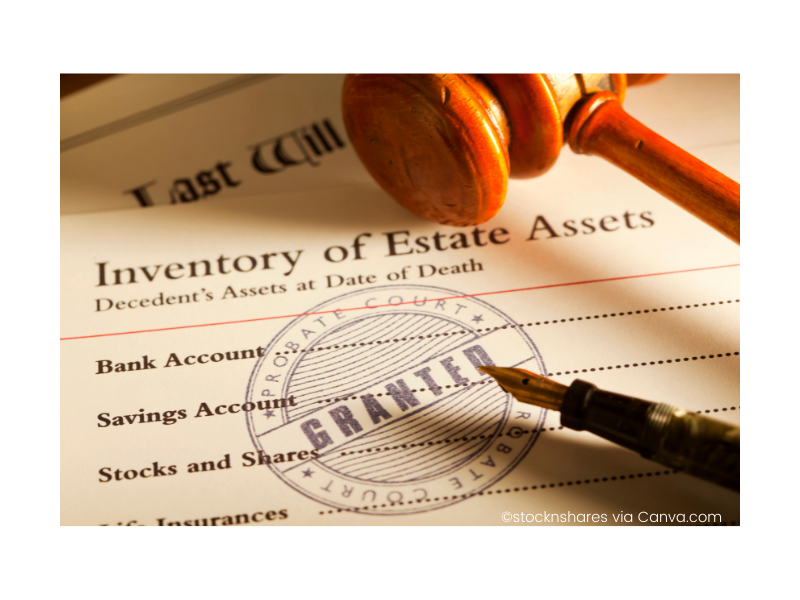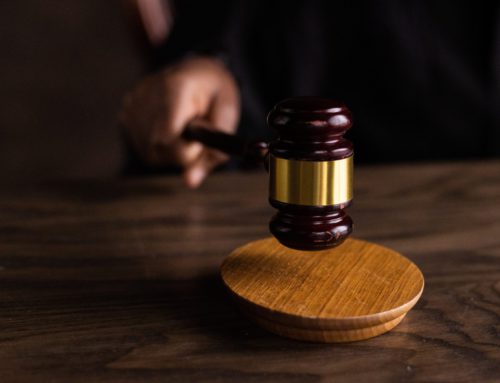What if there’s no will? A guide to intestacy rules
What are intestacy rules? How do they apply?
Most of us know that we should probably have a will. Research from Canada Life Ltd suggests that 59% of us, or 31 million people, don’t have one. Families and friends have nothing written down about what should happen to our estate after we pass away.
If someone dies without leaving a will, then the estate is known as Intestate.
If there’s no will, Intestacy Rules apply in England and Wales. This article gives an overview of the rules and processes. Please note: rules differ slightly in Scotland and Northern Ireland, as outlined below.
Intestacy Rules
The intestacy rules for England and Wales describe how the estate should be split amongst surviving family. If there are no surviving blood relatives, everything automatically goes to the Government. These rules don’t take into account the quality of family relationships, unmarried partners or close friendships. They are purely based on your family tree – the family hierarchy.
The Family Tree – Family Hierarchy:
The order of entitlement of inheritors is always as follows:
- Husband, wife or civil partner (including if they were separated but not divorced)
- Children (including legally adopted children but not step-children)
- Grandchildren
- Great-grandchildren
- Parents
- Brothers and sisters
- Nieces and nephews
- Half-brothers and half-sisters
- Half-nieces and half-nephews (the children of the half-brothers and half-sisters of the deceased)
- Grandparents
- Aunts and uncles
- Cousins
- Half-aunts and half-uncles (the half-brothers and half-sisters of the deceased’s parent)
- Half-cousins (the children of the half-brothers and half-sisters of the deceased’s parent)
In terms of dividing up the inheritance, the rules take the simplest option for the first £270,000 of the estate. After that, the rules show how to divide the assets amongst the next most entitled family members.
For instance:
- When the person who died had a husband, wife or civil partner and left assets in their sole name worth £250,000. The surviving spouse/partner inherits all of the estate and no other relatives are entitled to any of the assets.
- However, if the person who died was unmarried / their spouse was deceased, but they had two children, then the £250,000 would be divided equally between them.
But
- If the estate was worth, £290,000 and there was a surviving husband/wife and natural or legally adopted children, then:
- The husband/wife or civil partner keeps the first £270,000
- The remaining £20,000 is divided up :
- Half of what’s left (£10,000) goes to the husband/wife/civil partner
- The remainder is divided equally between the children
The Government provides a calculation tool for working out who gets how much – we’ve included the link below.
Intestacy rules in Scotland:
Scotland has the Succession (Scotland) Act which uses the phrase “Prior Rights” rules to decide who gets what. As in England & Wales, unmarried partners are not legally entitled to any share of the inheritance. The amounts that spouses/ civil partners will receive differ slightly from the English and Welsh rules. These are reviewed from time to time. Please see the link below for more detail on how the Scottish system works.
If you live in Northern Ireland:
The rules in Northern Ireland follow a similar pattern to those of England and Wales (“Beyond Life” has a helpful flowchart explaining the process – see link below)
Who will be in charge of administering the estate?
If there’s no will, someone may need to apply to become the administrator of the estate. There are circumstances where an application won’t be necessary. For example if assets were jointly owned by a spouse or civil partner, or if the estate value is less than £10,000 (see excepted estates for more information).
If, however, an application is required then, across the whole of the UK, it’s the Administrator of The Estate who takes responsibility for valuing the estate, settling any debts and distributing any inheritance according to the intestacy rules.
The role of administrator normally goes to the person at the top of the family hierarchy, who will need to apply to the Government’s Probate Registry for a “Grant of Representation.”
This involves:
- Estimating and reporting the value of the estate to HMRC
- Paying any inheritance tax that’s due
- Paying the probate application fee: £273 if the estate is worth more than £5,000, otherwise it’s free
- Applying online or by post to become the administrator
Once this is complete, you’ll receive your “Letters of Administration” which show that you have the legal right to deal with the estate.
As Administrator, you then apply the Intestacy Rules and divide up the estate. However, if you don’t want to do this job, you can pass it on to someone else.
What if I’m top of the hierarchy, but I don’t want to administer the estate?
Don’t worry – there are two other options:
- Appoint a lawyer to act on your behalf by giving them Power of Attorney using a downloadable Power of Attorney (Intestate) Form;
or
- Nominate one or two people who are next-most entitled to be administrators (according to the family hierarchy list). Fill in the Intestate Form and send it to:
HMCTS Probate
PO BOX 12625
Harlow
CM20 9QE
How Settld can help:
At Settld, we specialise in simplifying the process of end-of-life administration. Our service for Estates that do not require probate is free to members of the public and is designed to make it easy for you to notify companies when a loved one has died, and request closure, transfer or amendment of their accounts. All you have to do is fill in a simple online form.
If you’re taking on the role of estate administrator, Settld can help you to keep control of the process with our probate service. We can help you to value the estate by obtaining date of death account balances (required for probate) on your behalf.
See if our award winning service is right for you. Click here to find out more here.
We don’t collect any money, that all comes to you, but we can save you from many hours of stress If you’d like to know more about Settld and how we can help, visit our website www.settld.care or you can email support@settld.care or call us on 0333 111 1111 (9am-5pm, Monday to Friday)
Useful Links:
- Which – administering an intestate estate: https://www.which.co.uk/money/wills-and-probate/probate/intestacy-rules-ay87y1u73pkk#administration
- Gov.UK: If the person did not leave a will: https://www.gov.uk/applying-for-probate/who-can-apply
- Scottish Intestacy Rules as described by The Gazette
- Northern irish Intestacy Rules as described by Beyond Life





